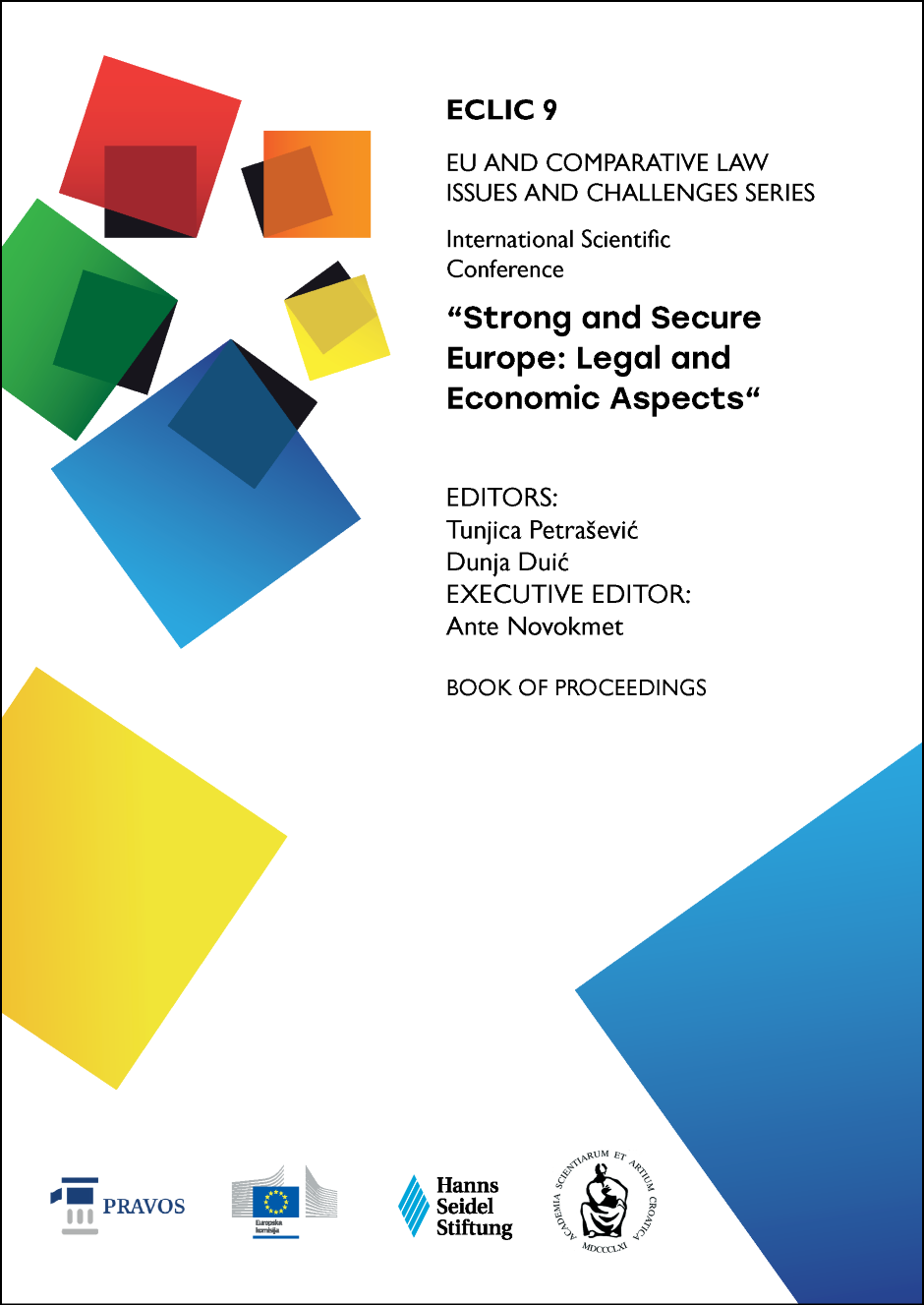LOBBYING IN THE EUROPEAN UNION
DOI:
https://doi.org/10.25234/eclic/38141Abstract
The legislation procedure within the European Union (EU) legal system is determined by the sources of EU law. Therefore, the legal acts adopted by the EU institutions are the instruments by which the application of its public policies is regulated. The process of adopting legal regulations is provided for by the creation of the public policies of the EU, which are at the same time influenced by the number of actors involved. Various political groups and the public administration of the EU play a significant role in creating the EU’s public policies. However, informal actors such as interest groups and lobbies play an increasingly important role in this process. Due to the participation of interest groups and lobbyists in the process of creating the EU’s public policies, and consequently their implementation, their influence on the EU policies has been transformed and increased in comparison with previous decades. Thus, interest groups and lobbies have become leading actors on the European scene, influencing the law and the economy of the EU through legitimate means, which has consequently also affected its member states and international relations. This paper aims to show how the interest groups and lobbies legally operate within the European legal system, illustrating at the same time the EU mechanisms of lobbying regulation, as well as showing the consequences of the EU’s institutions’ dependence on such influence – particularly on the specialized professional knowledge of experts, whose opinions can influence the adoption of certain EU public policies. In addition, the paper provides an overview of lobbying strategies and the legal regulation of lobbying within the EU. Lastly, the paper analyses the limits of the legal activity of interest groups and lobbies in relation to illegal forms of lobbying and corruption. Applying the method of analysis, the paper attempts to shed light on the impact of lobbying on the design and implementation of public policies in the EU.
Downloads
Published
Issue
Section
License
Copyright (c) 2025 Jasminka Đojinčević

This work is licensed under a Creative Commons Attribution-NonCommercial 4.0 International License.
Authors retain the copyright on the papers published in the Journal, but grant the right of first publication to the Journal. Papers accepted for publication or already published in ECLIC of the Faculty of Law in Osijek may be published by the author(s) in other publications only with proper notice of its previous publication in ECLIC.


